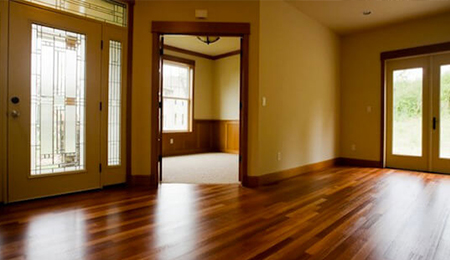Hudson County is officially becoming a buyer’s market. We’ve been in such a strong seller’s market for such a long time that it might seem crazy that a buyer could have any leverage in our market, but the reality is that they absolutely do.
We all knew that prices couldn’t keep going up forever. It was getting confusing when we would think that homes had reached their maximum prices, and then we would suddenly see another record home sale. It was really hard to predict when it was going to stop.
Now that the dust is beginning to settle, we can evaluate the data for the year so far. It’s pretty clear that homes are not selling nearly as fast as they used to. Last year, almost every single city in Hudson County had less than a 30-day supply of inventory. Fast-forward to this year, and we can see that a lot of the cities have reached almost 60 days’ worth of inventory. We’ve gotten to a point where demand is not as high as the supply anymore, causing the natural shift back toward a buyer’s market.
In order to give all my clients an advantage in a changing market, I spent a full month reading every single real estate news article I could get my hands on, sorting through all the data. I even went to open houses that weren’t even mine. I asked buyers questions about their mindsets and what they thought about the market.
After all this, I have compiled a list of the top reasons why we’re seeing a shift towards a buyers market:
1. Tax reform. When the tax codes changed this year, it took away the buyers who were purchasing real estate for the advantages of itemizing their interest and taxes. It’s actually more advantageous for married folks to just take the standard deduction; they end up paying less in taxes than if they itemized.
2. Interest rates. For seven quarters in a row, interest rates have increased, and it’s really starting to affect us now. For every 1% that interest rates rise, buyers lose 10% of their buying power. Though a particular home’s price may not change, homes will become more expensive anyway.
3. Inventory. We have seen a lot more inventory coming on to the market his year. A lot of people have decided to sell since prices are really good. At the same time, there are a lot of new construction homes coming to the market as well. For now, there is too much inventory to balance with demand.
“This is the first time in a long time that buyers have had some leverage in the market.”
To be clear, this won’t result in a market crash; it may cause a bit of a slowdown, in which prices may slow their increase.
So how do you win in this market?
If you’re a seller, just know that you’re not selling at the top of the market, but very close to it. Real estate market cycles last from seven to nine years, so even if it goes up a little bit from here, it can’t continue to rise forever. However, you can still sell your home at a great price.
You also have the opportunity to be a strong buyer in a buyer’s market, to negotiate, and to get a great rate. This is the first time in a long time that you’ve had some leverage in the market. You could potentially negotiate a property down 3% to 4% and also get a fantastic interest rate while they’re still available. Waiting for the market to go down in order to buy a home might not necessarily get you the advantage you want; if you bought the home for 10% less but the interest rates are more than 5%, you’ll actually end up with a higher payment than if you had paid full price for it. If you’re thinking about buying, now is a great time to use the leverage you have to your advantage.
If you have any questions or would like a full market report, feel free to reach out to me. I hope to speak with you soon.



